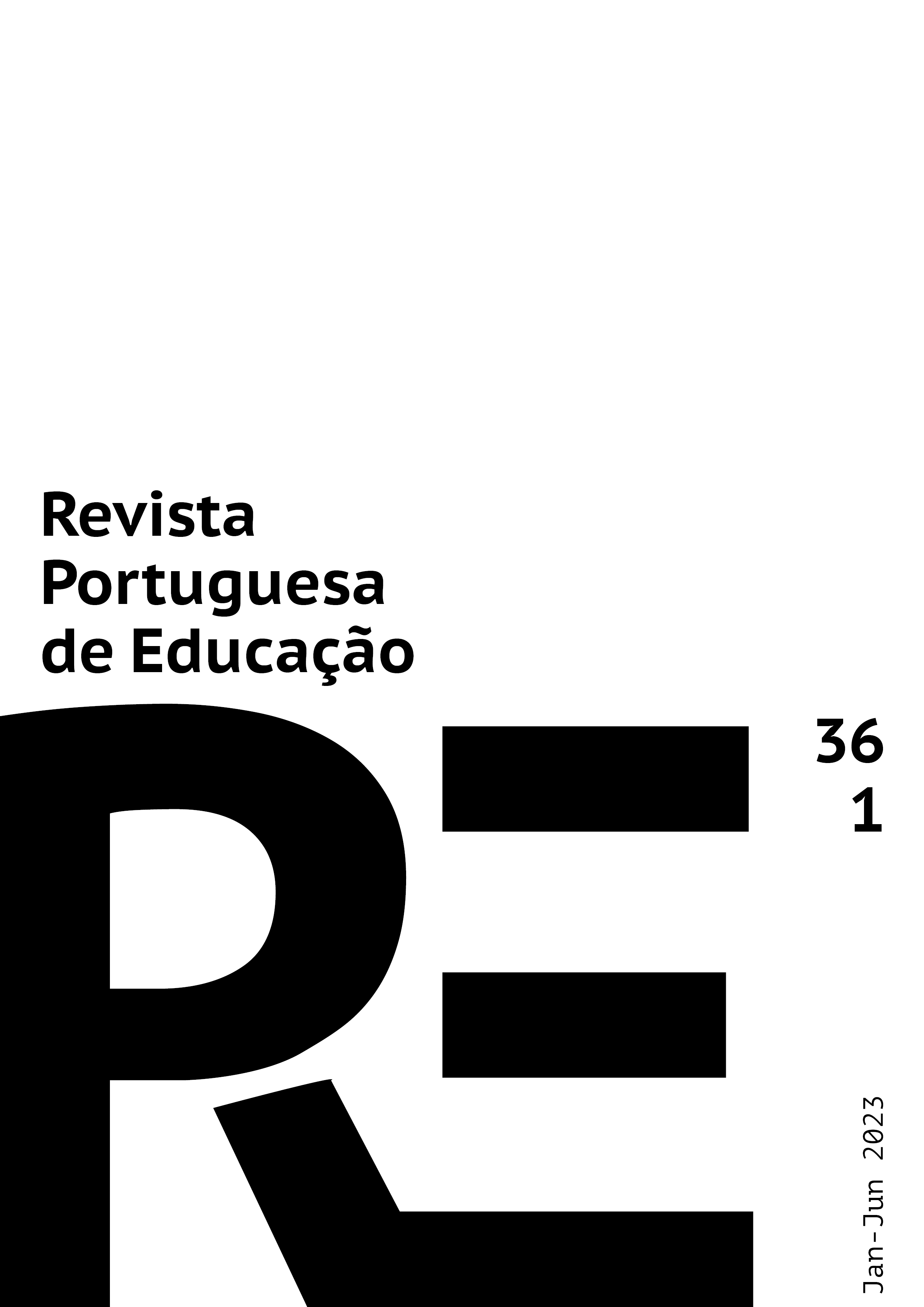Recensão da obra “Roma Minority Youth Across Cultural Contexts. Taking a Positive Approach to Research, Policy, and Practice”
DOI:
https://doi.org/10.21814/rpe.27341Downloads
Referências
Almeida, A., Abreu-Lima, I., Cruz, O., Gaspar, M. F., Brandão, T., Alarcão, M., Ribeiro Santos, M. & Cunha Machado, J. (2012). Parent education interventions: Results from a national study in Portugal, European Journal of Developmental Psychology, 9:1, 135-149. https://doi.org 10.1080/17405629.2011.647865
Benson, P.L. (2007). Developmental assets: An overview of theory, research, and practice. In R. Silbereisen & R. Lerner (eds.), Approaches to positive youth development (pp. 33-59). Sage.
Dimitrova, R., Ferrer-Wreder, L. & Ahlen, J. (2018). School climate, academic achievement and educational aspirations in Roma minority and Bulgarian majority adolescents. Child Youth Care Forum, 47, 645-658. https://doi.org/10.1007/s10566-018-9451-4
Freire, P. (2001). Pedagogia da autonomia: Saberes necessários à prática educativa (20.ª ed.). Paz e Terra.
Lerner, R. M., Wang, J., Hershberg, R. M., Buckingham, M. H., Harris, E. M., Tirrell, J. M., Bowers, E. P., & Lerner, J. V. (2017). Positive youth development among minority youth: A relational developmental systems model. In N. Cabrera & B. Leyendecker (Eds.), Handbook on positive development of minority children and youth (pp. 5-17). Springer, Cham. https://doi.org/10.1007/978-3-319-43645-6_1
Miranda, G. E., Almeida, A. T., & Mattar Yunes, M. A. (2022). Resiliencia familiar en el contexto del programa Caminhar em Família. Revista de Estudios e Investigación en Psicología y Educación, 9, 132-145. https://doi.org/10.17979/reipe.2022.9.0.8897
Rodríguez Gutiérrez, E., Martín Quintana, J. C., & Cruz Sosa, M. (2016). “Living adolescence in family” parenting program: Adaptation and implementation in social and school contexts. Psychosocial Intervention, 25(2), 103-110. https://doi.org/10.1016/j.psi.2016.03.004
Sarriera, J. C., Tatin, D. C., Coelho, R. P. S., & Bücker, J. (2007). Uso do tempo livre por adolescentes de classe popular [The free time usage by teenagers of lower class populations]. Psicologia: Reflexão e Crítica, 20(3), 361-367. https://doi.org/10.1590/S0102-79722007000300003
Seligman, M. E. P. (2019). Positive psychology: A personal history. Annual Review of Clinical Psychology, 15, 1-23. https://doi.org/10.1146/annurev-clinpsy-050718-095653
Smith, E. P., Faulk, M., & Sizer, M. (2016). Exploring the meso-system: The roles of community, family, and peers in adolescent delinquency and positive youth development. Youth & Society, 48(3), 318-343. https://doi.org/10.1177/0044118X13491581 Walsh, F. (2016). Applying a family resilience framework in training, practice, and research: Mastering the art of the possible. Family Process, 55(4), 616-632. https://doi.org/10.1111/famp.12260
Yunes, M. A. M., Fernandes, G., & Weschenfelder, G. V. (2018). Intervenções psicoeducacionais positivas para promoção de resiliência: o profissional da educação como tutor de desenvolvimento. Educação, 41(1), 83–92. https://doi.org/10.15448/1981-2582.2018.1.29766
Downloads
Publicado
Como Citar
Edição
Secção
Licença
Direitos de Autor (c) 2023 Ana Maria Tomás de Almeida, Maria Ângela Mattar Yunes

Este trabalho encontra-se publicado com a Licença Internacional Creative Commons Atribuição-CompartilhaIgual 4.0.
1. Autores conservam os direitos de autor e concedem à revista o direito de primeira publicação, com o trabalho simultaneamente licenciado sob a Licença Creative Commons Attribution 4.0 CC-BY-SA que permite a partilha do trabalho com reconhecimento da autoria e publicação inicial nesta revista;
2. Autores e autoras têm autorização para assumir contratos adicionais separadamente para distribuição não-exclusiva da versão do trabalho publicada nesta revista (ex.: depositar em repositório institucional ou como capítulo de livro), com reconhecimento de autoria e publicação inicial nesta revista;
3. Autores e autoras têm permissão e são estimulado/as a publicar e distribuir o seu trabalho online (ex.: em repositórios institucionais ou na sua página pessoal), já que isso pode aumentar o impacto e a citação do trabalho publicado (Veja O Efeito do Acesso Livre).
Esta obra está licenciada sob uma Licença Creative Commons - Atribuição Compartilhamento pela mesma Licença Internacional 4.0





















